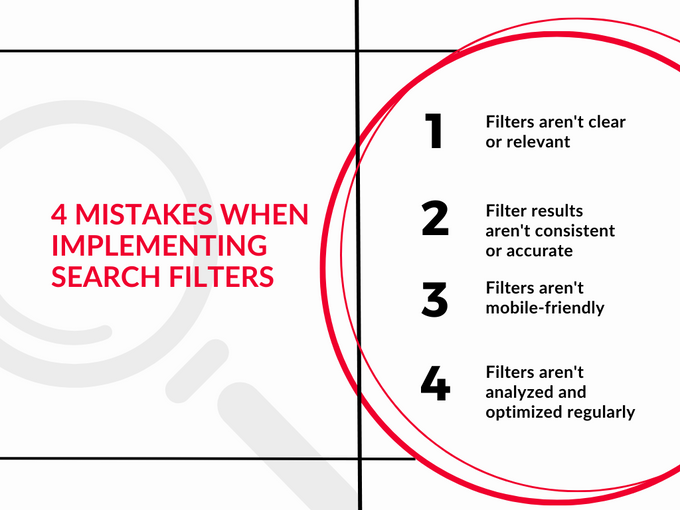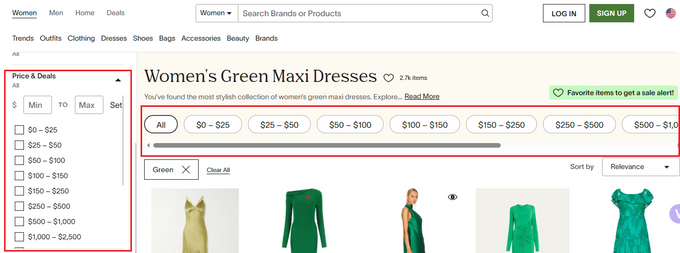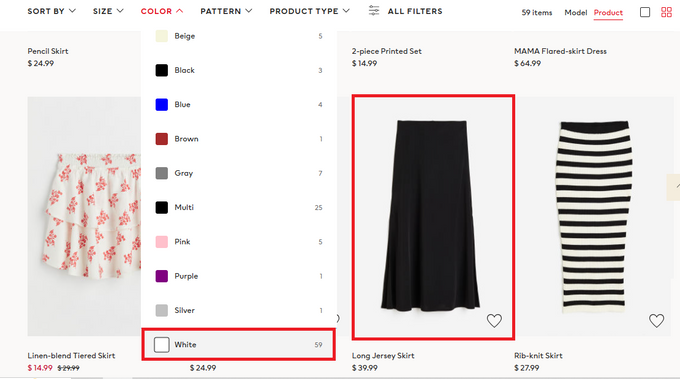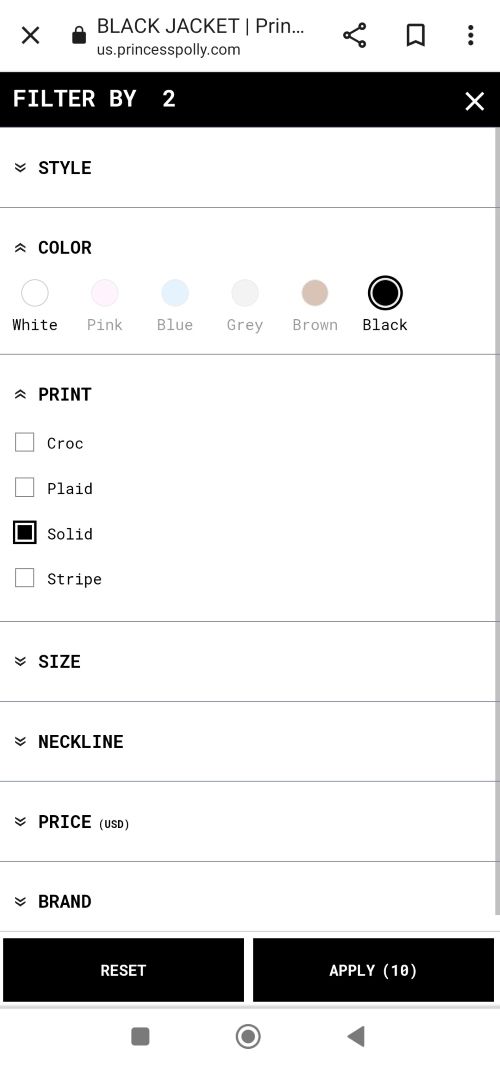4 Most Common Mistakes to Avoid When Implementing Search Filters on Shopify
Search filters greatly enhance a customer's shopping experience, but only when done correctly. Learn which common mistakes to avoid.
Updated December 16, 2025

Research shows that 43% of online retail shoppers head directly to the site search bar, highlighting the importance of robust search filters. These filters narrow down customer searches to ensure they find what they're looking for as quickly as possible.
Despite this, studies also reveal that 57% of eCommerce sites have filters with "mediocre or worse" performance. To ensure the effective implementation of search filters on Shopify Search, it's essential to steer clear of these common mistakes.
» Learn how to easily add product filters to Shopify
1. Filters That Aren't Clear or Relevant
It's critical for your filters to be directly and clearly related to product searches. Some mistakes here include:
- Irrelevant or unnecessary filters
- Overloading users with too many filter options
- Filters that users can't even find on the store
The online clothing store below is an example of having too many search filters. They have 15 options under the pricing category alone, which are cumbersome for the customer to scroll through. It's also unnecessary to show the same search filters vertically and horizontally across the screen.
2. Filter Results That Aren't Consistent or Accurate
Why have a search filter if the results aren't accurate? It's frustrating when:
- Products are incorrectly tagged or categorized
- Filters aren't used consistently across different product pages
- No clear feedback when applying or removing filters
The clothing store below is an example of incorrectly tagged products, a common challenge for eCommerce fashion brands. When using white as a search filter, a black skirt (that was not also available in white) appeared in the search results.
3. Filters That Aren't Mobile-Friendly
With the rise of M-Commerce, more and more users shop on mobile every day. In fact, it's estimated that retail sales made via mobile devices will almost double from 2021 to 2025. If your search filters aren't mobile-friendly, you can lose business that could've easily been saved.
Some common issues with search filters on mobile devices include:
- Excessive filter options and a cluttered interface
- Small or inaccurate touch targets, like filter checkboxes, sliders, or dropdown menus
- Complex filtering mechanisms, like multistep processes or hidden menus
- Slow-loading or unresponsive filters
- Lack of visual feedback, like failing to indicate selected filters
Online fashion boutique, Princess Polly, organizes their filters in easily clickable dropdown lists for an uncluttered interface. Moreover, the selected filters are clearly marked, and the "Reset" and "Apply" buttons are large and easy to click.
» Learn more about effective, automatically generated Shopify search filters
4. Filters That Aren't Analyzed and Optimized Regularly
In addition to creating strong filters, it's essential to review and optimize their performance regularly. Many merchants neglect this step, failing to track user behavior and preferences to uncover how they're engaging with them.
Search filters may become outdated or irrelevant as customers' needs and preferences change. Over time, a filter overload may occur, making the eCommerce search process unnecessarily complex and overwhelming.
It's vital for retailers to continuously refine their filters based on data insights. This way, they can be sure everything is always running at its best.
» Discover additional ways to optimize eCommerce filters
Use Filters Effectively for Fast Results
Functional and intuitive search filters play a key role in the online shopping experience. Be sure to avoid these four common mistakes when implementing Shopify search filters.
By prioritizing simplicity, usability, and continuous improvement, you can optimize your filters to boost customer satisfaction and conversions. This will help you gain a competitive edge in the Shopify ecosystem.
» Don't have a Shopify store? Explore your Magento Search and BigCommerce Search options instead








